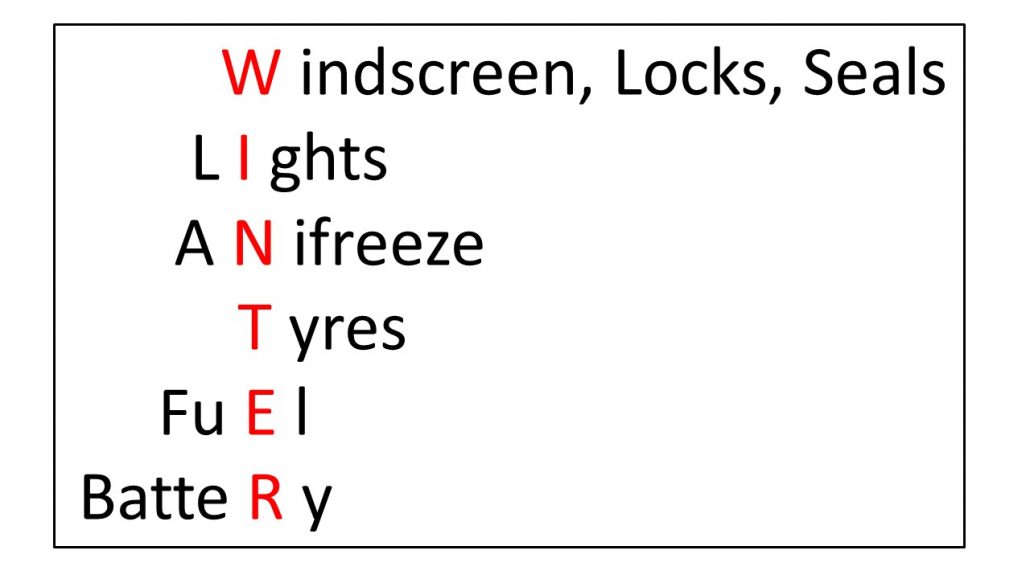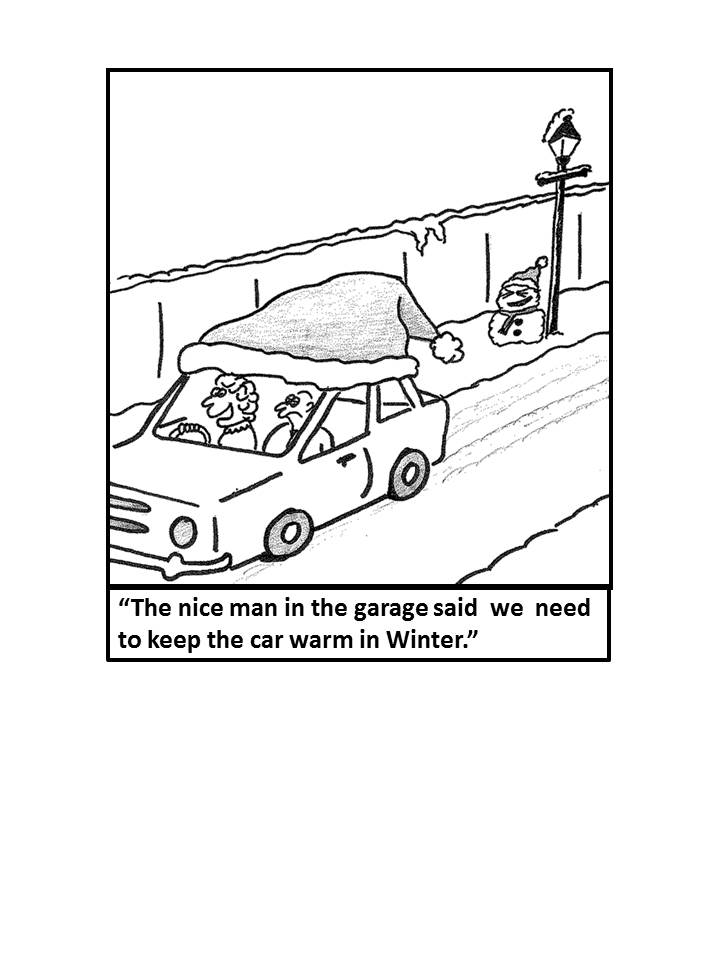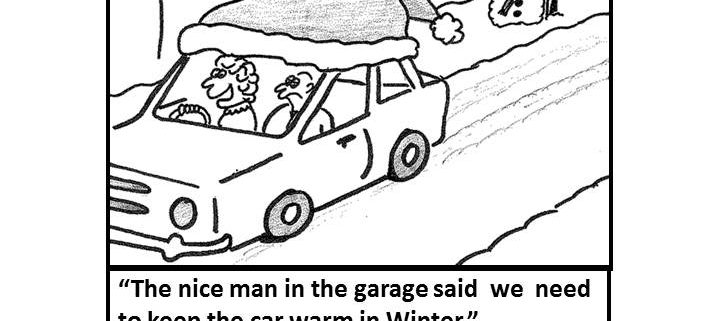Are you ready for winter?
The AA report that the majority of accidents happen over the winter months with a steep rise in reported breakdowns. But why do our cars suddenly become unreliable? What makes Winter different from other seasons?
The cold weather conditions affect many parts of a car – the oil becomes thicker (like honey left in a fridge), fuel doesn’t burn as effectively, pipes burst, engines seize, batteries don’t charge as efficiently and there is more drain on the system. As well as the doors freezing shut and wipers stuck to the windscreen!
As with all things mechanical/electrical, if you look after them they perform better. After all, you wouldn’t put your electric heater in the freezer and expect it to work would you?! So, with this in mind, here are a few helpful tips to keep you safe this winter.
Battery
The major cause of winter breakdowns….. the car battery.
When the car is turned on, there is a chemical reaction that produces electrons supplying the battery’s current. At normal temperatures they’ll produce enough current to keep the battery power full and working well. The more you drive, the more the battery charges. In colder weather it becomes harder for the battery to produce enough current to stay at maximum potential, therefore the reserves drop. There has to be enough charge in the battery to ‘turn over’ the engine so that it can produce more energy. In cold weather the power available, even when fully charged, is only half what it would be in warm weather.
The good news is that you can take steps to reduce the chance of your battery letting you down.
- During a routine service, your garage will check the clamps and connections to the battery are secure and corrosion free.
- The life of a battery is usually around 5 years, so if it is older and there are signs of struggling to start the car, best to get it replaced.
- When you park, remove any extra drain on the battery by turning off anything electrical – wipers, heater, lights, radio, etc. When you come back to the car, the charge goes directly to the starter motor therefore optimum ability to ‘turn over’ and recharge.
- On a manual car, dip the clutch to prevent the car from trying to start the gearbox also.
Antifreeze/Coolant
The radiator in your vehicle cools your engine and needs a mixture of water and Antifreeze to function. Antifreeze prevents corrosion, freezing and overheating of the radiator, engine, water pump, etc. Starting a car with a frozen water pump could strip the teeth off the timing belt leading to expensive internal damage, so it is vital to keep this at the right mix and level.

Other issues you may encounter could be:
Frozen screen washers – remember to use a screen wash additive all year round. Undiluted in winter works best, but read the bottle first.
Frozen wipers – Trying to operate windscreen wipers stuck solid to the glass can lead to blown fuses affecting other more vital systems. Make sure automatic windscreen wipers are turned off. Make sure the wipers aren’t stuck to the glass, before setting off too!
Frozen door locks and door seals – A squirt of WD40 in the locks will help as will a light smear of Vaseline or silicone polish on the door seals (applied by cloth to avoid getting it on the paintwork!). If snow falls clear it regularly to prevent the car turning into a block of ice.
Frozen ignition locks – Anything electrical can become affected by damp weather. The key here is to keep the interior as dry as possible – don’t leave snow covered wellies or clothes in the car overnight.
Windows frozen to their frame – Best to leave the car until it is warmed up and the ice is melted. Windows can detach from the mechanism if you try to activate them, or burn out the motor.
Frozen rear drum brakes and handbrake cables – Keeping your car clean through the winter to remove corrosive road salt is good, but try not to use the hose or pressure washer to prevent the water getting into the brake cables or drums.
Garage – Some people go to the extreme and remove their battery to take it inside, but our advice would be to use your garage, if you are able to, which will keep the vehicle dry and as warm as possible.
Fuel – Be prepared for untimely delays and keep at least ¼ tank of fuel in the car.
Winter Tyres
Winter tyres increase your stopping distance by 11m in temperatures below -7°C. It is worth considering them if you do a lot of driving! They are made from a special compound and tread design providing drivers with excellent grip and control in low temperatures.
The MET office statistics show that the average temperature 2015-2018 remained below 7°C for 4-6 months, making cold weather tyres suitable for use from October to March.
If this is your preferred tyre this winter, it is worth getting them ordered soon as demand is usually high.
If winter tyres aren’t your thing, the AA recommend at least 3mm tread depth to help maintain your contact with the road. Even at 3mm, your tyre is 78% worn.

Make sure you and your family remain safe this winter and don’t leave anything to chance. If you’d rather not have the hassle of checking over the car yourself, talk to a professional.
At Redbourn Auto Solutions we put a high emphasis on the safety of our customers, therefore a Full Winter Check is a complimentary service. To book call us on 01582 679300
For more information on winter driving or what to carry in your boot over the winter, take a look at our website www.RedbournAutoSolutions.com



